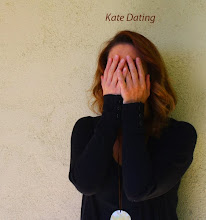There is nothing quite like that feeling of seeing someone special across a crowded room (or match.com screen). You feel this connection, and despite all your reservations (which are mostly focused around you not having visited a gym in the last five years), you think that he could be the one. All you need to do is get his name and his number… and possibly his birth date. Because everyone knows that it's easier to narrow him down in the criminal offenders database if you have that information.
Very smart dating services have been using the background check for years, but apparently now it is available to the average Jane/Joe, as well. I know this because while I was running through my DVR, the commercial for BeenVerified.com kept popping up. Obviously, I approve. New people, places and things all make me slightly nervous. Also, people, places and things I've known about for a while could still be suspect. And I think we can all agree on the fact that I'm not getting in a date's car (should there ever be a date again) without knowing his criminal history, actual marital status (because I'm certainly not going to take his word for it) and his SAT scores (GREs are optional). So, places like BeenVerified.com are speaking my language.
However, I'm curious if those of you out there in blogland are also availing yourselves of the services. So… hands up if you have ever personally checked out a potential date—or had someone else do it for you.
I'm genuinely curious. Is dating more dangerous now than it was in the 1960s? It feels like it, but is it? I really don't think it would have crossed the mind of either of my parents to investigate the other. Sure, it would have been much more expensive and time-consuming in 1965, but also, seemingly unnecessary. Is it because we meet each other in much more casual and anonymous ways so we don't have the ability to judge someone's personality over time? I'd argue that is true, particularly if you are online dating. Then again, my parents met in a diner. They didn't work together. They didn't know each other before my father asked my mother out on a date. They had no friends in common. And yet, Sam Spade (or rather his 1960s equivalent) wasn't required.
Why were we willing to give each other the benefit of the doubt then, but not now? Are we ourselves more likely to lie to someone and, therefore, we assume that the people we encounter are also lying to us?
I know why I would do it—I have trust issues. No mystery. But the friends of mine, who have faced the biggest danger from their "romantic" partners, would have faced it with a background check or not because their partners had never been arrested or prosecuted. It would have saved Reb from that awkward "oh, he's still married" situation, but "separated" continues to confound. Even the dating database suggested in the novel "Insider Dating" seems like it would be too open to vindictive ex-partners and speculation.
So, what is the solution? I'd like the answer to be that we'll all just have to be really great people and make all of this unnecessary. Then again, I'd also like engraved invitations requesting the honor of my presence in a ball gown more often, so… my wants might be on the fringe of realistic.
Give me your wisdom, for I have none. I do, however, have a lovely Pinot that I'm willing to share.

2 comments:
According to Barry Glassner's Culture of Fear, it is only our perception of danger that has increased, mostly driven by media, politicians, etc. Most of our fears are simply not based in reality. For instance, most people who fear flying drive a car every day without worry even though they are much more likely to die in a car crash than a plane crash. I'm guessing dating isn't actually any more dangerous than it's ever been, but the impersonal nature of online dating probably makes us more wary.
I have to agree with Helen on this. Since most of us singles are turning to online dating scenes, there's less interpersonal interactions and a sort of disconnect among people. Rather than gauging people based on interaction, we gauge people by a little undercover investigation. Google is perhaps the first resource we turn to to know if that person really exists and is really who he says he is.
Post a Comment